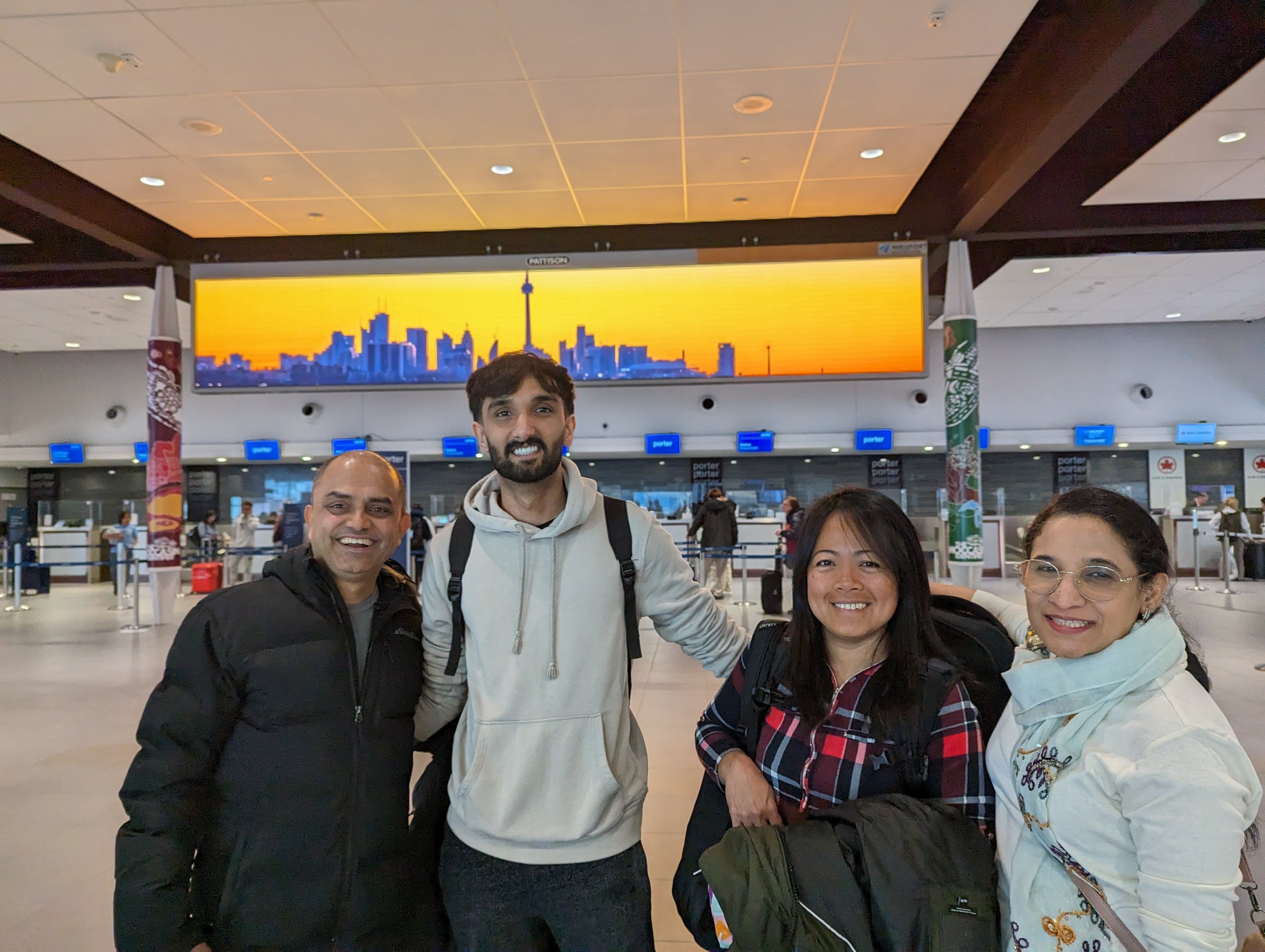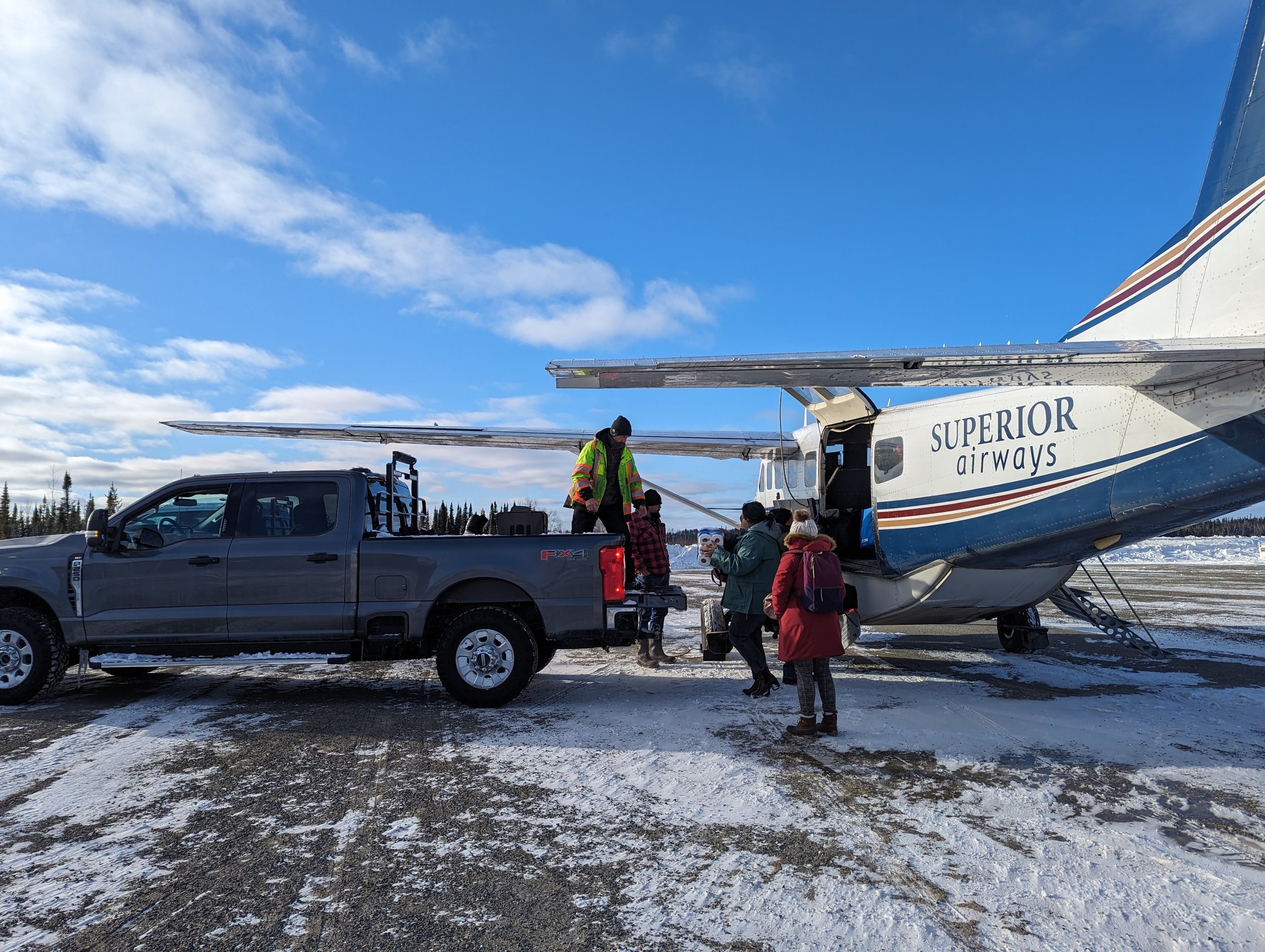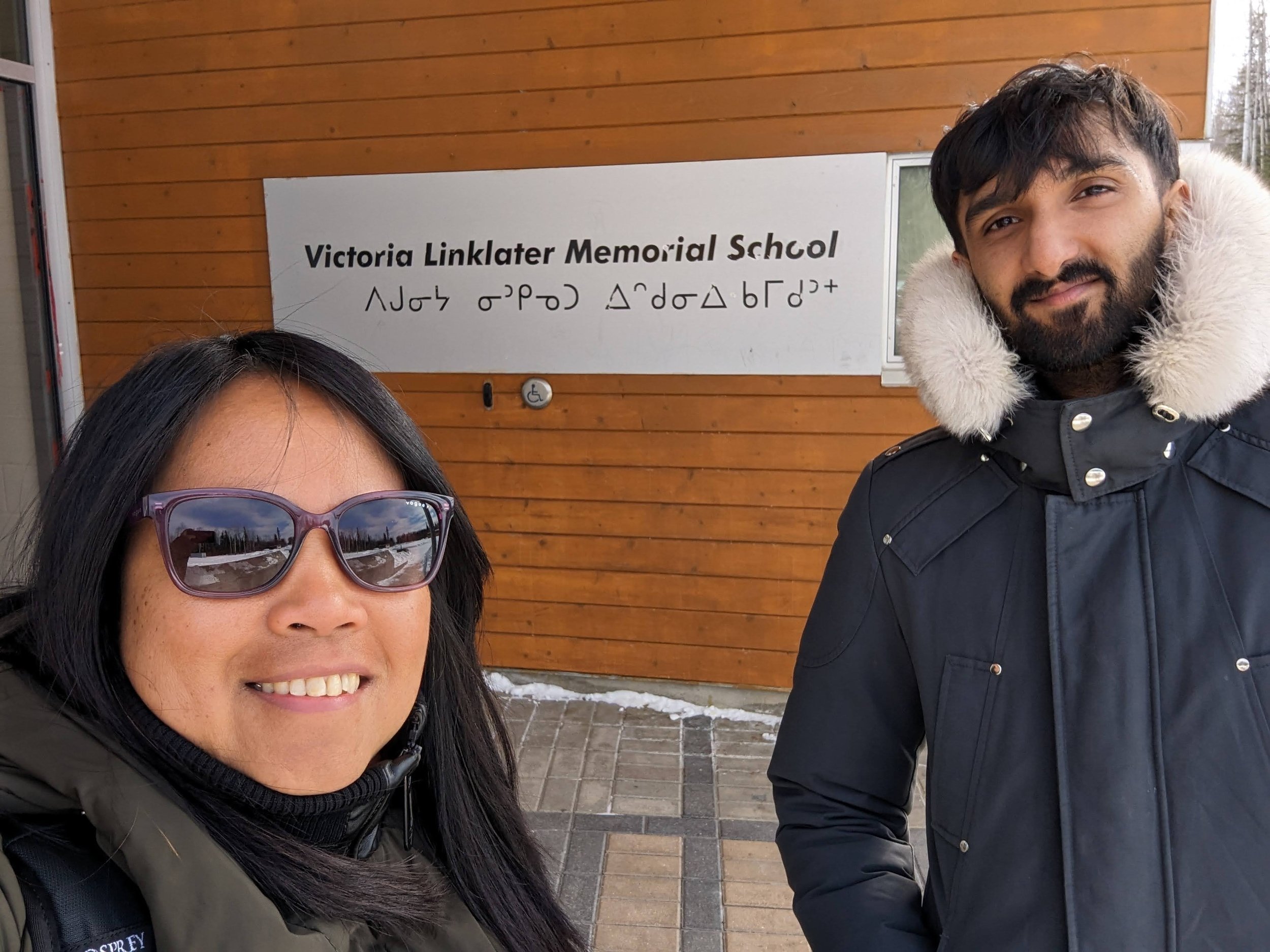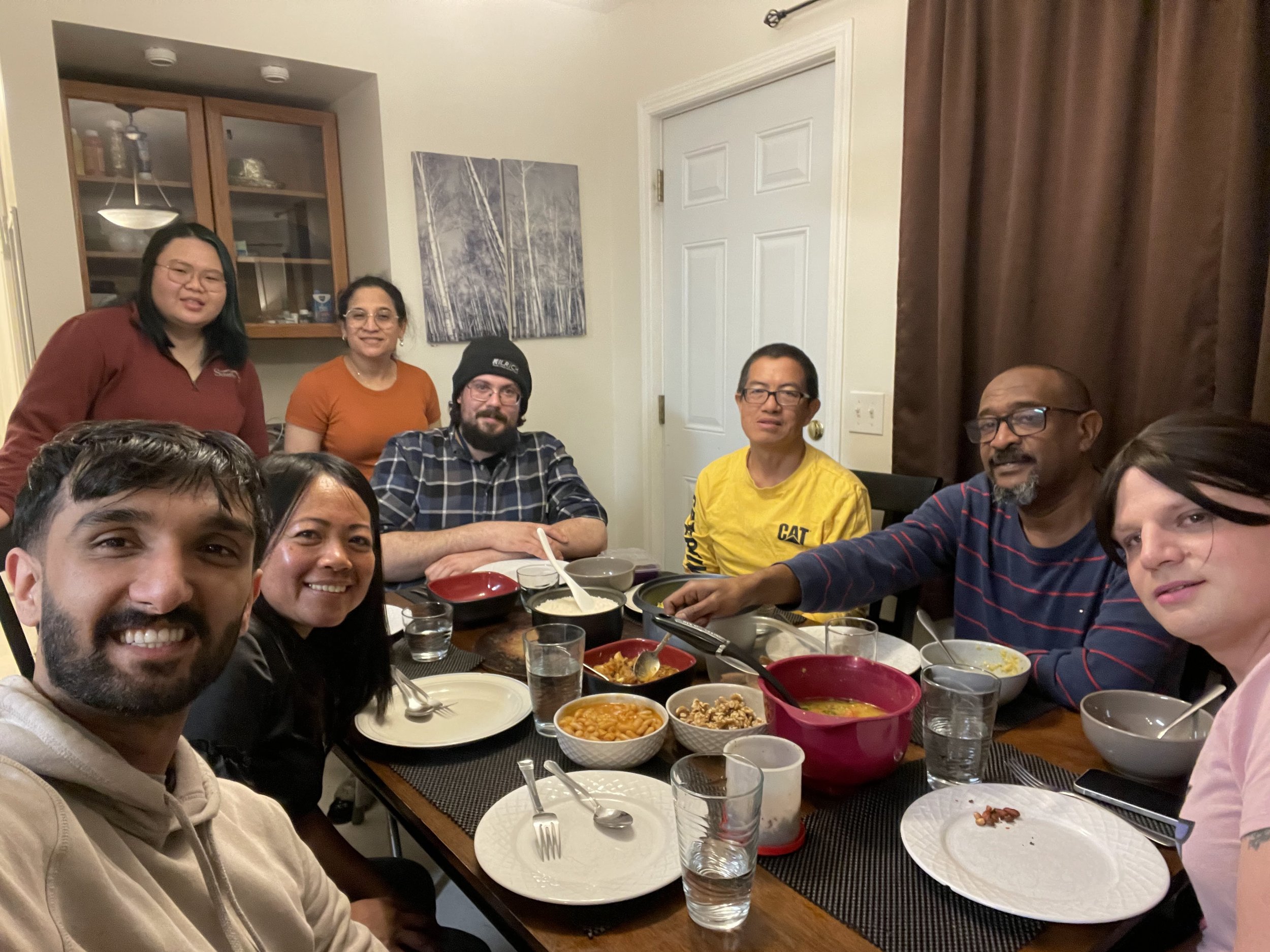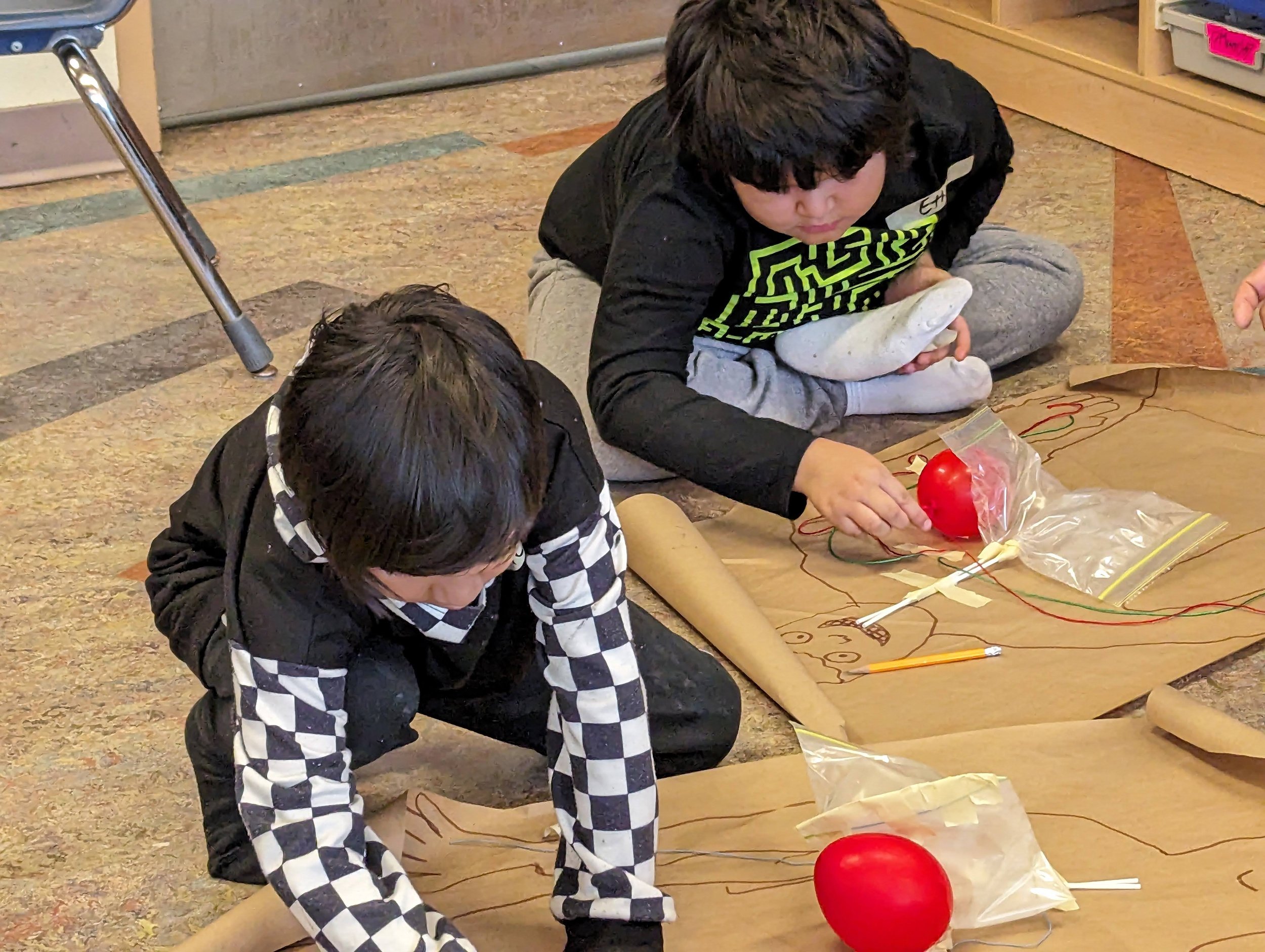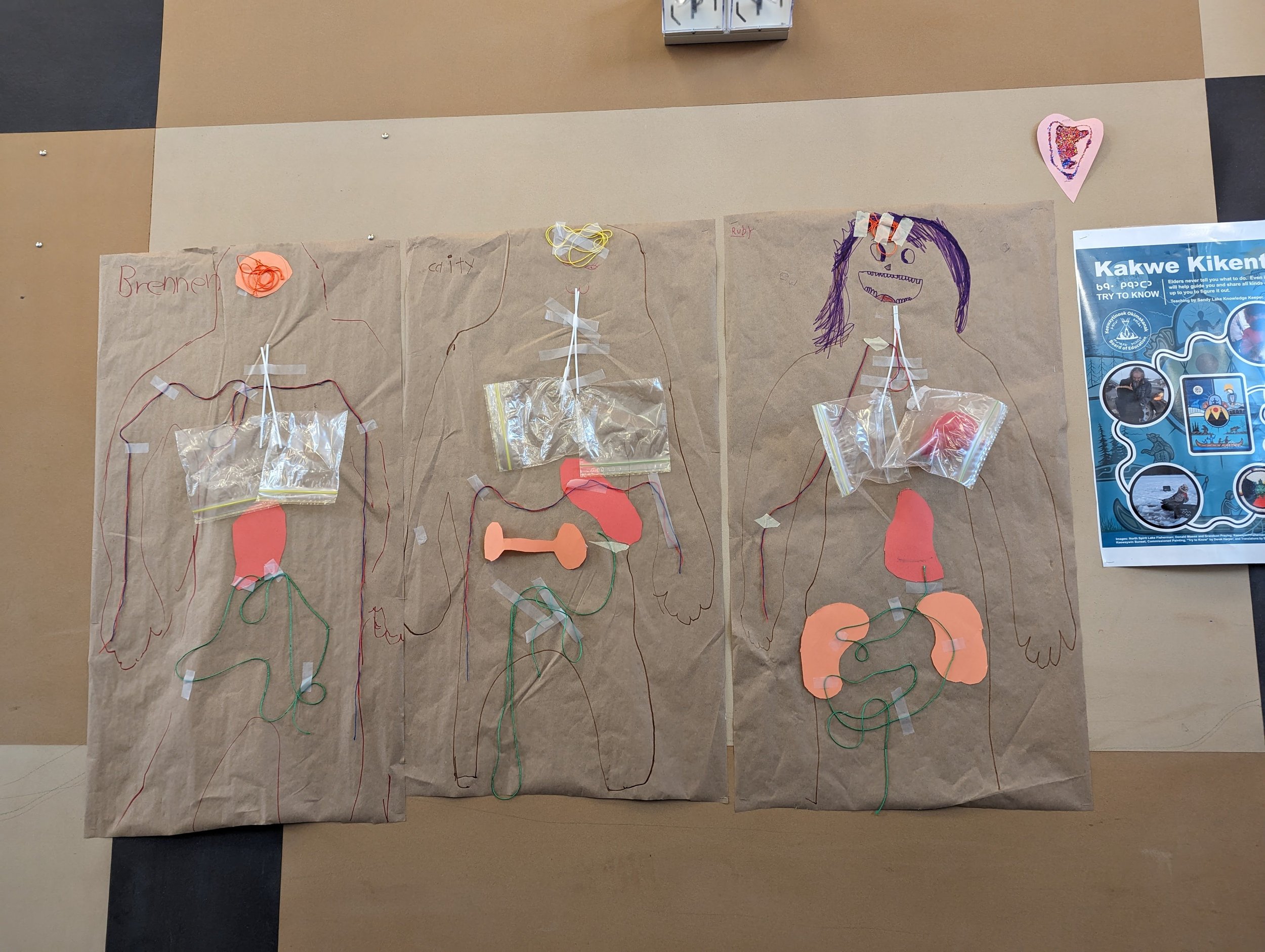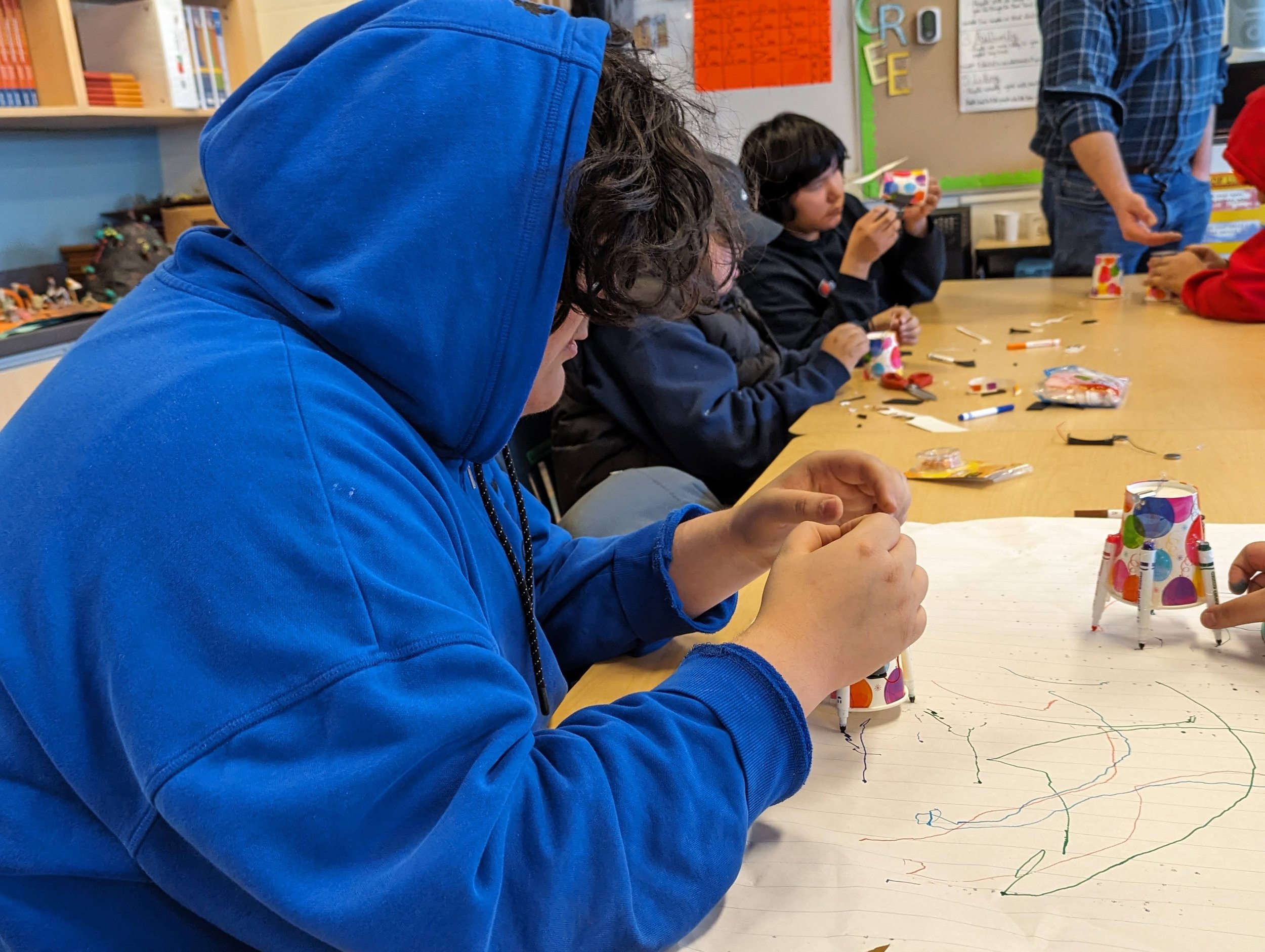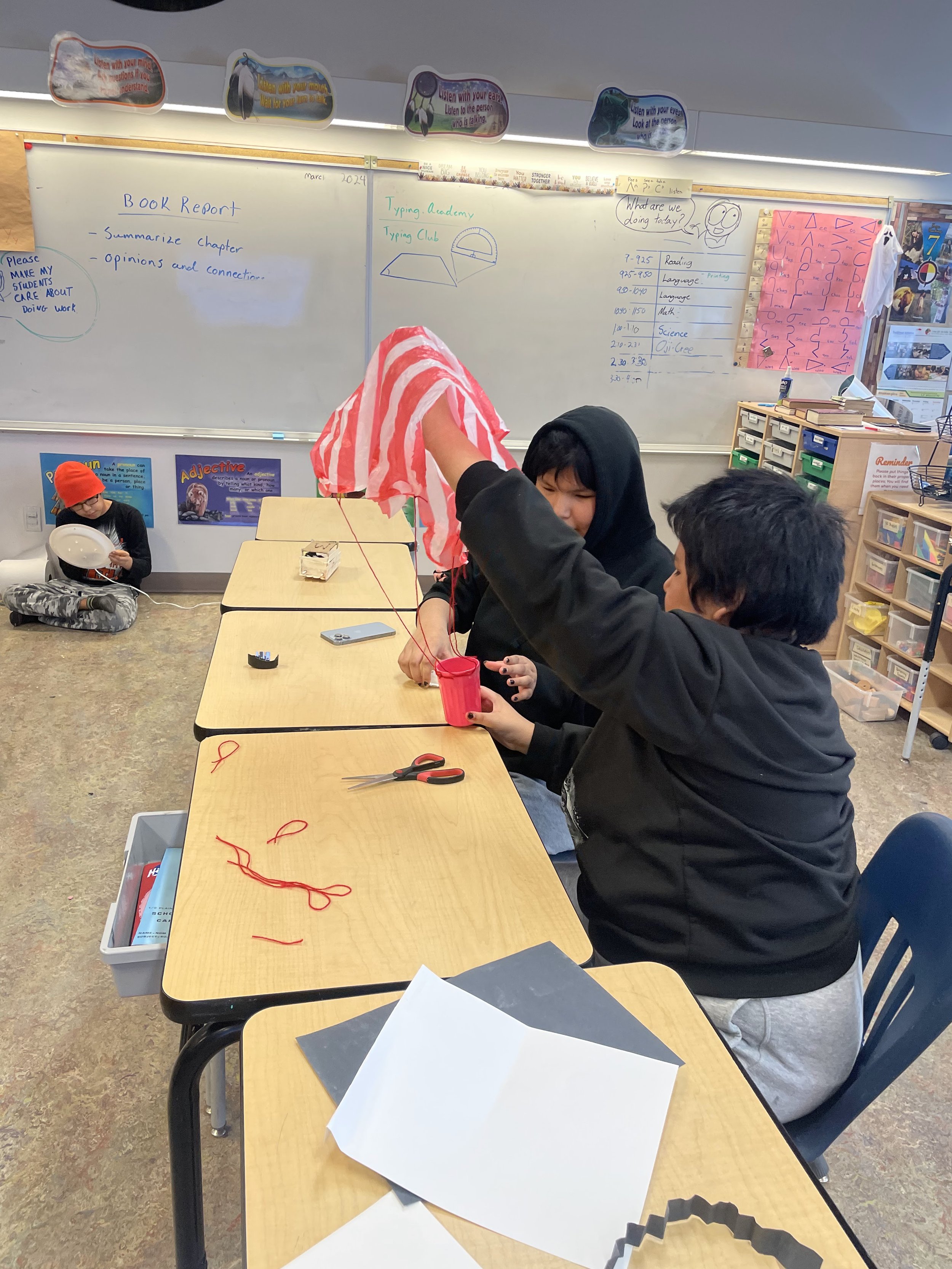Pueblo Visits Victoria Linklater Memorial School
Our journey with Victoria Linklater Memorial School began in 2023 during the Matawa Education conference, a gathering of 400+ educators in First Nation Communities across Canada. After much planning, we launched an online class program with them in January 2023, leading up to a 5-day visit for a science week/festival. We decided on the visit after the March break, arranging to travel on a chartered plane with the returning teachers.
On March 16, Hamzah Khan and I embarked on our trip to Thunder Bay, brimming with excitement. It was Hamzah's first visit to a reserve, and I looked forward to experiencing another northern community and perhaps catching walleye for dinner, as promised by one of the teachers.
The journey felt akin to traveling to the Philippines, spanning over 20 hours to reach North Spirit Lake. We flew to Thunder Bay, spent the night, and then boarded a two-hour chartered flight to our destination. Arriving amidst a recent snowstorm, we were greeted by a picturesque scene of fluffy white snow covering the landscape. The teachers warmly welcomed us, preparing a delightful meal that we shared together, fostering a sense of community akin to dining with family. The authentic Nepalese cuisine added to the enriching experience as lively conversations unfolded, deepening our understanding of the community and its students. Our meals with the teachers over the next 5 days were equally delightful and insightful.
Our first class commenced with the Kindergarteners, who were adorable and eagerly anticipated meeting the scientists. We engaged them in creating outlines of each other on large craft paper, followed by crafting human body models using balloons, strings, straws, and plastic bags. Laughter and playful teasing ensued as the kids observed their body outlines on paper, with some keen on adding colorful hair and details. They learned fascinating facts such as the size of their heart relative to their fist and the length of their intestines compared to half the length of their classroom.
Throughout the week, we visited various grade levels, conducting experiments and activities ranging from periscopes, drums, and catapults to slime, ice cream making, playdough, hydraulic arms, and robotic doodle cups. We delved into discussions on light and sound properties, physical and chemical changes, mixtures, pressure and forces, energy, circuits, and engineering design. The students exhibited enthusiasm and interactive participation, asking insightful questions and actively engaging in the learning process.
The affectionate hugs from the younger students on the second day onwards were heartwarming, reflecting the genuine connections fostered during our visit. On our final day, as we bid farewell, we were once again embraced with hugs and warm goodbyes from both students and teachers, with many students eagerly asking about our return.
Our science festival on the fourth day was a resounding success, with experiments like chromatography buttons, writing with light, a science magic show, and lava lamps captivating the students' interest. They reveled in creating intricate patterns for buttons, experimenting with lasers for the first time, and marveling at the properties of light showcased in the writing activity. The magic show left a lasting impression, with students recalling favorite tricks like burning money, skewering balloons, and anti-gravity water.
As we departed, the students' curiosity and enthusiasm lingered, with some already practicing spoon balancing tricks from the magic show. Their inquiries about our return filled us with joy, promising continued engagement through online sessions and the possibility of another visit next year. Our time at Victoria Linklater Memorial School was a testament to the power of immersive learning experiences and the enduring bonds forged through shared knowledge and exploration.
This blog was written by Mayrose Salvador, the Executive Director of Pueblo Science.
We acknowledge the support of the Natural Sciences and Engineering Research Council of Canada (NSERC).
Nous remercions le Conseil de recherches en sciences naturelles et en génie du Canada (CRSNG) de son soutien.
We also acknowledge the support of Chemical Institute of Canada|Chemical Education Fund.

